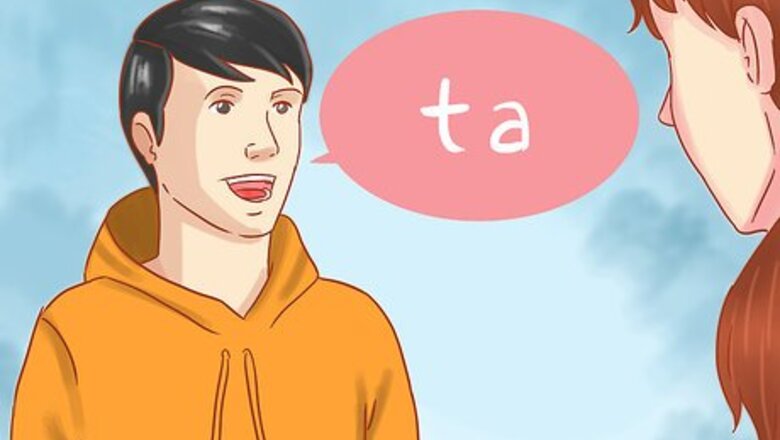
views
Learning a Basic "I Love You"
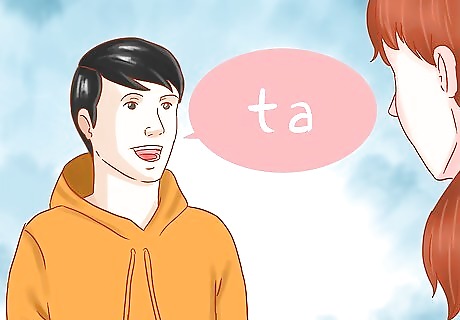
Say "tá." This word means "there" or "yes." It is pronounced "tah" (it rhymes with the English word "raw").
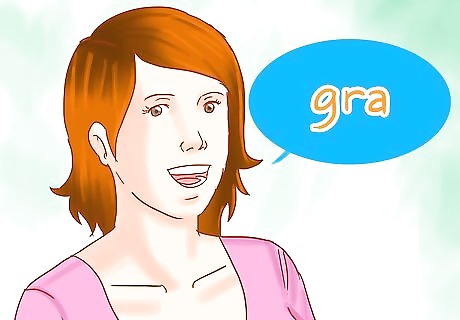
Say "grá." This word means "love." It is pronounced "grah" (it also rhymes with the English word "raw"). This word is sometimes spelled "ghrá," but the pronunciation is the same.
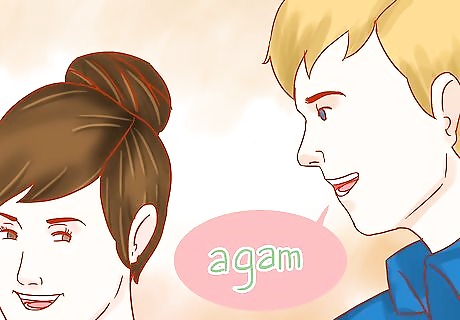
Say "agam." This word means "I." It is pronounced "UH-gum." The first syllable uses a vowel sound that's a little like a combination of the long a in "raw" and the short u in "hug." The second syllable sounds very similar to the English word "gum." Be sure to put the stress on the first syllable here. The word is pronounced "UH-gum," not "uh-GUM." Reversing the stresses will make it hard for others to understand you. This would be like pronouncing the English word "aided" as "ay-DUD" rather than "AY-dud." This word can sometimes be spelled "again," which can be confusing because of the English word spelled the same way. However, the pronunciation is never the same.

Say "duit." This means "you." It is pronounced similarly to the English word "ditch." Use a short i sound (as in "hit") and a ch sound (as in "cheese") at the end of the word. Depending on the region of Ireland, this word can also sometimes be pronounced as "dit." Some speakers even add a w sound for a pronunciation that resembles "dwitch."
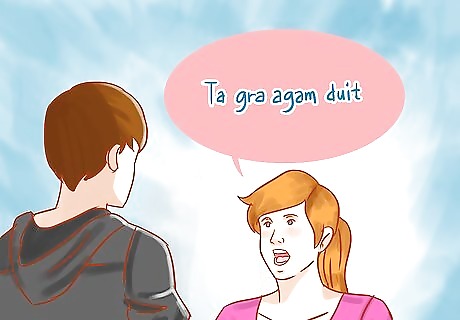
Put it all together. Once you've mastered the pronunciation for each word in the phrase, just say them in order to get "I love you." "Tá grá agam duit" is pronounced (roughly) "Tah grah UH-gum ditch." Though this phrase literally means "There love I you," Irish speakers will understand it as "I love you." However, this isn't always the most common way that this is said in Ireland. In the section below, you'll learn a few more ways to say that you love someone. Depending on the region, one of these may be the "normal" way to say it.
Learning Alternate "I Love You" Phrases
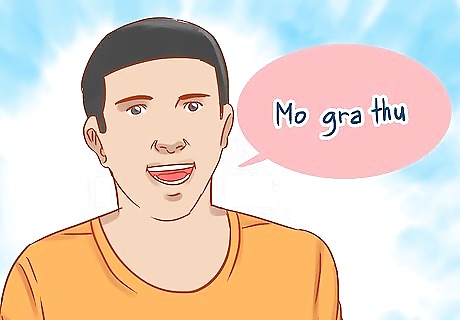
Use "Mo grá thú." This is roughly pronounced "mow grah hoo." The first word rhymes with "low." Don't be fooled by the th in the last word — "thú" should sound like the noise an owl makes. Some regional accents pronounce it a little more like "huh," but the important point is that you should use an h sound for the word. Literally, this means "my love you," but the meaning is essentially "I love you."
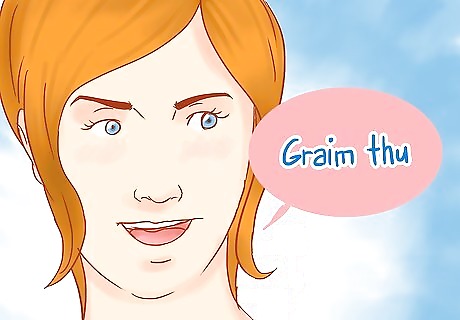
Try "Gráim thú." This is pronounced "GRAH-im hoo." Notice that the first word is actually two syllables even though it looks like it might be just one. Also note that the first syllable is stressed, rather than the second. This is a shorter, easier version of the phrase above. The meaning is more or less the same.
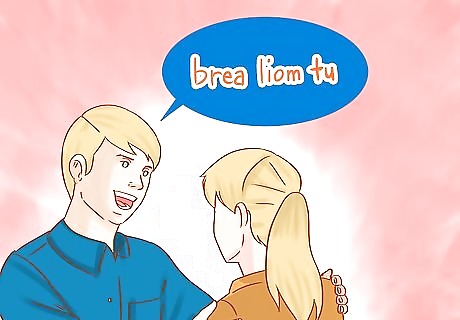
Say "Is breá liom tú." This is pronounced "Iss brah lum too." Use a hard s sound (as in "sass") for the first word. It should not sound like the English word "is." Note that "breá" rhymes with "raw" and that the second word rhymes with "strum" regardless of how they look like they would be pronounced in English.
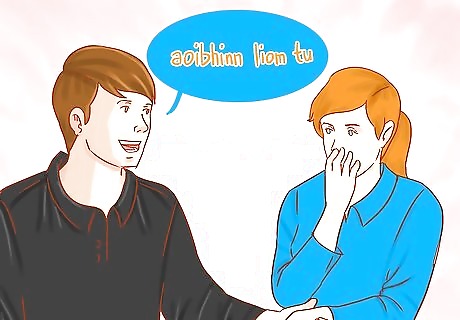
Alternatively, use "Is aoibhinn liom tú." This phrase should sound like "Iss even lum too." Notice that the only word that is different between this phrase and the one above is "aoibhinn." Despite how it looks, this word is pronounced almost exactly like the English word "even." The rest of the words are pronounced the same way as in the step above. While the phrase above means "I love you," the literal meaning here is closer to "you delight me." The meaning is less romantic and more affectionate. You can also use this phrase for objects (see below).
Learning Related Phrases
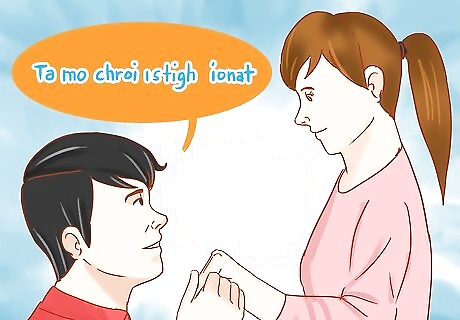
If you are madly in love with someone, say "Tá mo chroí istigh ionat." The pronunciation here is "tah mow KHree iss-tee on-ud." Literally, this means "my heart is in in you," but the actual meaning is similar to "you are very dear to my heart." There are two difficult pronunciations here: "Chroí" is probably the hardest word to pronounce. You want to use a guttural h/ch sound from your throat that doesn't exist in English. It's basically the same sound used in a few common Hebrew words like "Chanukah." "Istigh" sounds roughly like "iss-tee" or "ish-tig" depending on the regional accent. Use a hard s (as in "sass") or an sh sound (as in "shoot"), not a soft s/z sound (as in "glaze").
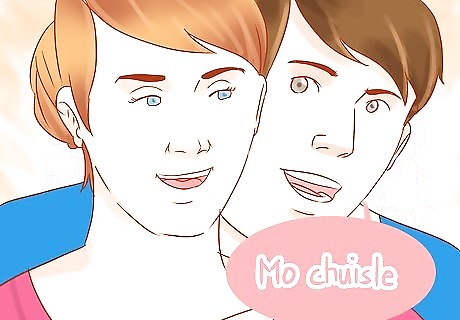
To call someone "darling," say "Mo chuisle." This is pronounced "Moe KHoosh-leh." "Mo" is easy — it rhymes with "blow." "Chuisle" is a little harder. You need to use a guttural h/ch sound (as in "Chanukah") to start the word. The "oosh" part rhymes with "push." The "le" at the end uses the short e sound (as in "red"). Literally, this means "my pulse." It's a common expression taken from the original phrase "A chuisle mo chroí" ("pulse of my heart").
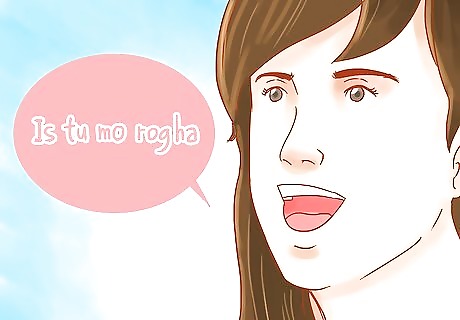
To call someone your chosen one, say "Is tú mo rogha." This is pronounced "Iss too moe raow-uh." "Rogha" is the most difficult word here. The first syllable rhymes with "plow," not "blow." The gh combination makes a w sound (as in "wet"). Note also that "is" is pronounced with a hard s sound as mentioned above. Literally, "rogha" means "choice" or "favorite." It can also mean "flower," which gives this phrase a flattering double meaning.
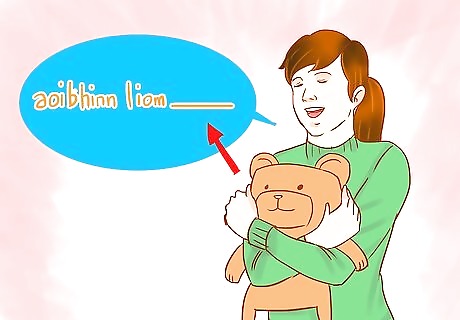
If you love an idea or object, say "Is aoibhinn liom ______." This phrase is pronounced "Iss even lum ____," where the blank is the object or idea that you love. This phrase is used for when you love something, but you're not romantically in love with it. For example, if you really like your grandmother's pasta, you might say "Is aoibhinn liom pasta." Note that this phrase is identical to "Is aoibhinn liom tú" from the section above except that you're substituting a different word for tú ("you").












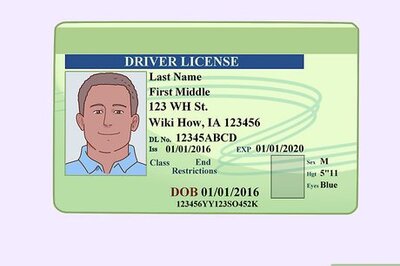


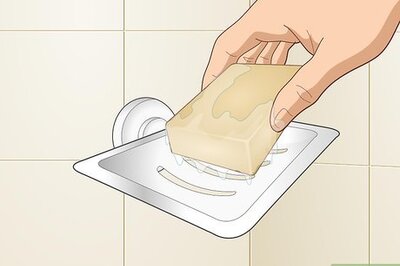
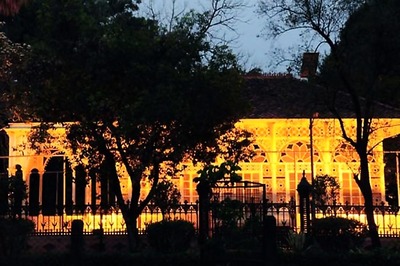

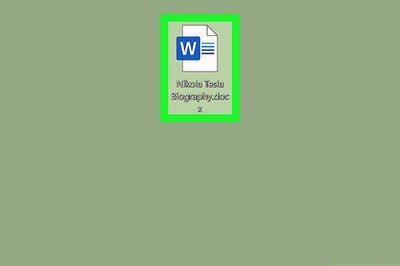
Comments
0 comment